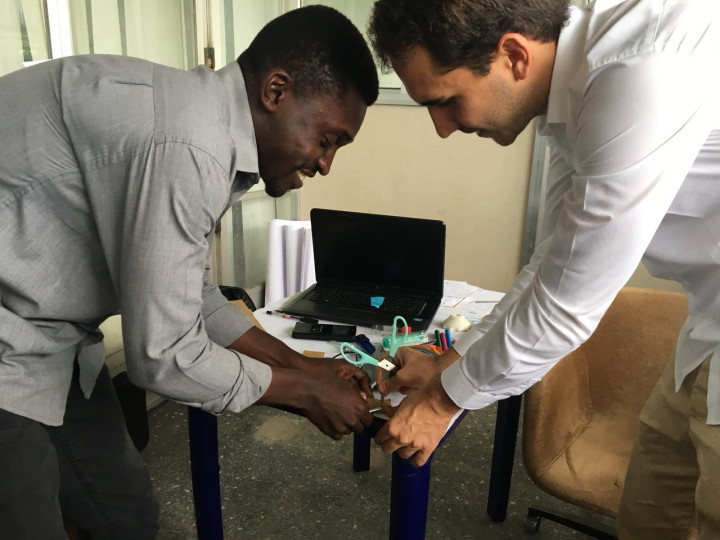Schistoscope.
Schistosomiasis is a parasitically neglected tropical disease that mainly occurs in Sub-Saharan Africa. More than 250 million people are infected and 700 million have the chance of infection. This parasite is mainly found in still standing water sources. The danger of this parasite is that it penetrates through the skin surface. After this it multiplies in the bladder and transforms into worms that move through the bloodstream to all organs and then affect them.
The problem is that this disease mainly occurs in poorer parts of Africa without proper sanitation. Because the disease slowly affects the body, many patients do not know that they are infected. And because the diagnosis of the disease is an expensive and long process, the disease and symptoms are ignored.
For this, we, team zoom, are going to develop the schistoscope. The team consists of:
Satyajith Jujjavarapu - Embedded systems
Jasper Faber - Integrated Product Design
Joy Hooft Graafland - Integrated Product Design
Antonio Chozas - Integrated Product Design
Sonali Patel - Integrated Product Design
Salvador Lluch - Integrated Product Design
The Schistoscope is a medical diagnosis device based on smart algorithms integrated in a smartphone. These algorithms will automatically detect the filtered parasite eggs. The product will be open source and produced locally in collaboration with local universities to stimulate entrepreneurs.
The goal of the project is to develop an inexpensive, smart diagnostic device that can be locally produced and repaired to be accessible for the last mile of health care providers. The Schistoscope will be developed in such a way that no expertise is needed to operate the product, as a result of which the product will become even more accessible.
In order to optimally develop and integrate the product, the project will consist of 2 on-site visits. In the first visit, the focus will be on mapping the manufacturing possibilities and on cooperation with the universities in order to gain insights to improve the prototype.
The second visit will focus completely on testing the final prototype and the implementation of the product. We will also look at future steps that can be taken for this.
Do you want to be kept informed of the project? Keep an eye on the S4S site and our instagram: schistosomiasis.zoom
For questions about the project, please contact: zoomdelft@googlegroups.com




